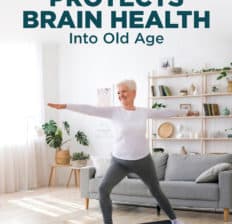This Dr. Axe content is medically reviewed or fact checked to ensure factually accurate information.
With strict editorial sourcing guidelines, we only link to academic research institutions, reputable media sites and, when research is available, medically peer-reviewed studies. Note that the numbers in parentheses (1, 2, etc.) are clickable links to these studies.
The information in our articles is NOT intended to replace a one-on-one relationship with a qualified health care professional and is not intended as medical advice.
This article is based on scientific evidence, written by experts and fact checked by our trained editorial staff. Note that the numbers in parentheses (1, 2, etc.) are clickable links to medically peer-reviewed studies.
Our team includes licensed nutritionists and dietitians, certified health education specialists, as well as certified strength and conditioning specialists, personal trainers and corrective exercise specialists. Our team aims to be not only thorough with its research, but also objective and unbiased.
The information in our articles is NOT intended to replace a one-on-one relationship with a qualified health care professional and is not intended as medical advice.
Study Shows Exercise and Cognition Link in Elderly
February 16, 2022

It’s well-known that exercise is extremely important to overall health, but do you ever think about its impact on your memory? A new study shows the remarkable connection between exercise and cognition among older adults.
The many benefits of exercise include boosting energy levels, promoting a better mood, improving sleep, fighting chronic disease and, according to this recent research, supporting healthy brain function, especially among older adults.
The study, which was conducted at the University of California San Francisco and published in January 2022, found that exercising alters brain chemistry in elderly people, supporting healthy cognition. By boosting the production of certain proteins that help with nerve cell signaling, exercise helps prevent dementia and other neurodegenerative conditions.
Study Findings: Exercise and Cognition in Elderly
A study published this January in Alzheimer’s & Dementia explored the beneficial effects of physical activity on cognition. Researchers found that when elderly people stayed active, their brains had more of a class of proteins that enhance connection between nerve cells.
Lead study author Kaitlin Casaletto, Ph.D, said that maintaining the integrity of connections between neurons may be a vital element in fighting dementia, according to an article published in Science Daily. The synapse between neurons, which allows them to pass signals or messages, is where cognition happens, and the study shows that exercise may boost this synaptic functioning.
The findings indicate that older adults who remained active had higher levels of proteins that facilitate the exchange of signals or information between neurons. This aligned with previous research on these proteins playing an important role in healthy cognition.
What’s more, the report showed that the benefits of exercise on neurons went beyond the hippocampus, the center of learning and memory, and impacted other regions that are associated with cognition.
Exercises to Maintain Cognition
Now that we know exercise and cognition are related, let’s explore the best exercises for older adults or anyone looking to support cognitive function. Sticking to an exercise routine that involves moderate endurance, but can be done consistently, is ideal.
Aim for 20–30 minutes of physical activity per day. This can include:
- Walking
- Swimming
- Water aerobics
- Calisthenics
- Cycling
- Yoga
- Barre
- Pilates
- Dancing
- Bodyweight training
- Resistance band workouts
- Stretching
In addition to regular exercise, other natural ways to improve memory include learning new things (like working on a new skill or trying brain-boosting exercises), getting enough sleep, staying socially engaged and eating a healthy, anti-inflammatory diet.
Conclusion
- The unknowns about how exercise maintains cognition were made clearer in a recent study conducted at UC San Francisco.
- The study shows that when elderly people remain active, their brains have more of a class of proteins that enhance connection between nerve cells. This connection allows for proper nerve signaling and better cognitive function.
- The key to exercising for cognition is to engage in moderate physical activity regularly, aiming for 20–30 minutes of movement per day. Some great forms of exercise to work into your routine include walking, swimming, water aerobics, yoga, cycling and bodyweight training.



